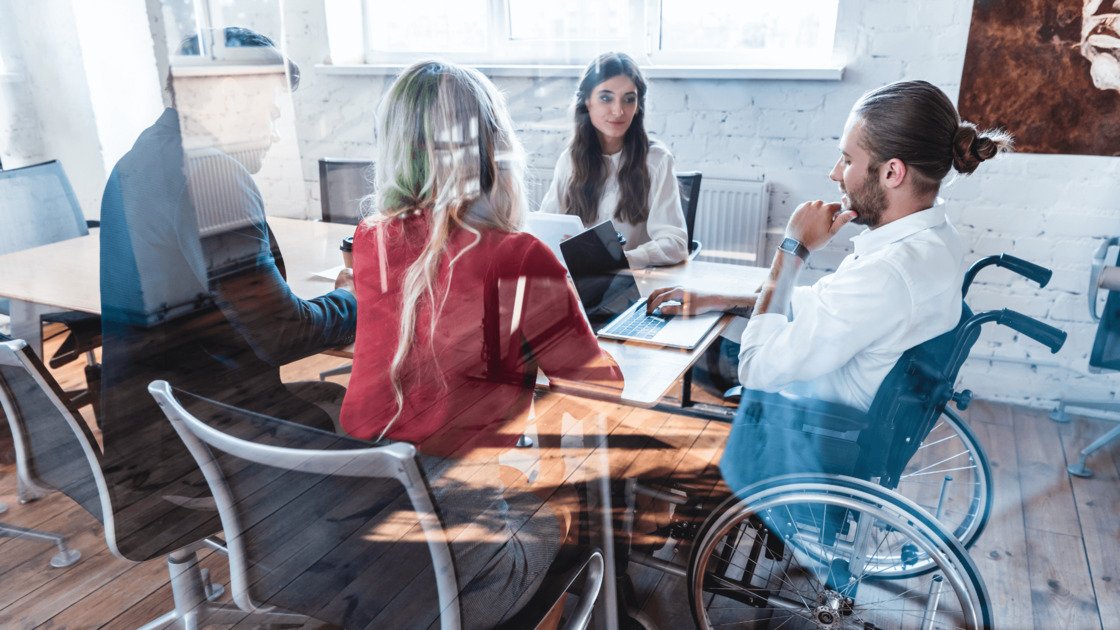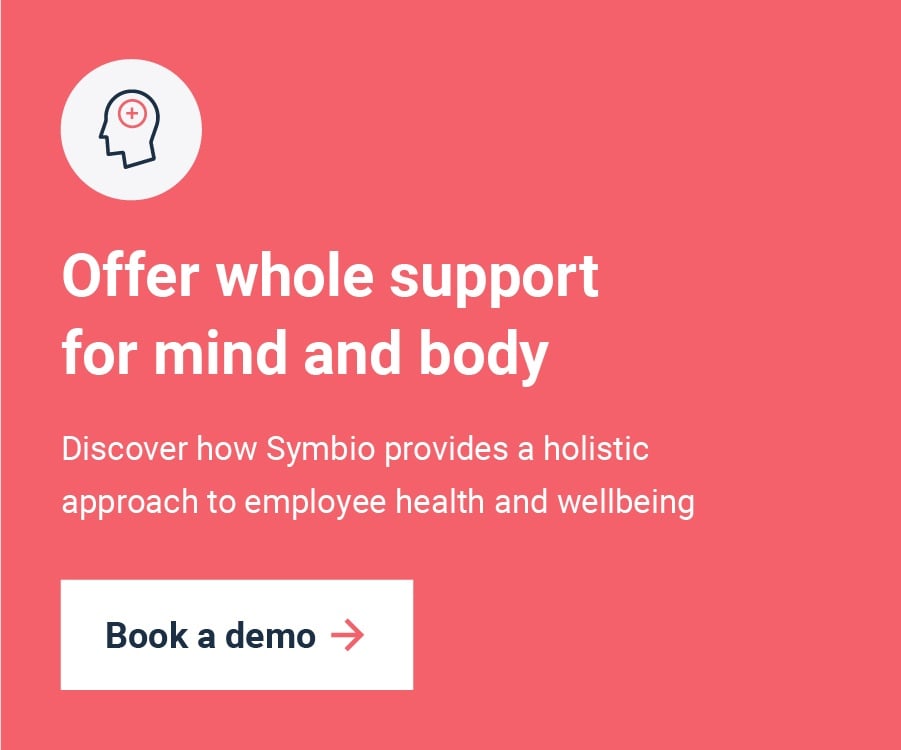We recently chatted with Gem Turner, award-winning disabled lifestyle blogger to get her opinions on how to embrace disability in your workforce (and beyond!). Here's what she had to say:
When you think about disability, do you conjure up images of visible disabilities like wheelchair users? The emoji for a disability is a blue square with a white stick person in a wheelchair. So, it's fair to make that assumption.But, you may be surprised to know that 1 in 5 people in the UK is disabled, and 18% of those are of working age, so you probably know more disabled people than you think!
I'm in the small group of 8% of people who are wheelchair users. I was born with Osteogenesis Imperfecta or Brittle Bones for those without a degree in medicine. I'm 3" 1' and have used an electric wheelchair since I was 2 years old. Sometimes, I see people pause before approaching me, clearly thinking about what to do. I see them shaking and nervous to say hello.
This can also feel uncomfortable as a disabled person. Imagine people being anxious around you. It's definitely impacted my self-esteem, and it's taken years for me to build the confidence to brush off those interactions.
When you meet me, it's very obvious I'm disabled. But this isn't the case for everyone. There are so many invisible disabilities we don't know about, for example, if someone is blind, deaf or has a learning disability - there are many! So it's so important to have conversations about them. It can be challenging to talk about disability, whether you're disabled yourself or you want to connect with a friend or colleague that's disabled.
So, I thought I'd share some tips to get the conversation going around disability...
Don't shy away from the word
Unfortunately, there's still a massive stigma attached to disability. As a wheelchair user, I get pitied a lot. People feel sorry for me, give me looks and even (horrifically) pat me on the head. Disability is seen as suffering when it can very much be a proud part of someone's identity. Many people shy away from the word and use "differently-abled" or "special" or completely ignore it. One thing to remember - the term "disability" is known globally, so don't be afraid to use it!
Remember, everyone's journey is different
It's important to note that everyone is different. One disabled person will not think the same as another. We all have different upbringings, life experiences and people around us to support us (or lack of). This can all impact how we navigate our disability, how we deal with life and how we feel about our disabilities, too. I was born with my disability – it’s very much part of me, and I'm proud of it and what I've achieved. However, some people may develop a disability later on in life and will need to learn to adapt to it. There may also be trauma, so it's important to remember that and respect people and their journeys.
There are certain ways you can do this:
- sometimes it’s nice to wait for them to mention their disability first, this way it feels more natural and comfortable
- don’t always assume someone was “in an accident”, there are many ways someone can become disabled
- however, if they were, don’t ask “what happened” this is something very personal and so be mindful of this
- try not to compare them to people you know who are disabled, see the person as an individual with their own experiences and preferences
- if you do want to talk about their disability, ask if this is something they feel comfortable talking about first
This can be a private conversation, so think about the location of the conversation.
It's important to remember what information you ask a disabled person. Why are you asking a question? Is it because you're interested and want to support them? If it's just that you're interested – remember they may have already been asked this a few times today. Being reminded of trauma can be tiring. So, remember, take these conversations to one side, build trust and work out what adjustments are needed.
Talking can take trust, but it will also lead to better productivity, improved employee engagement and employee wellbeing
Before talking about my disability with someone I need to trust them first. I get a lot of strangers stopping me in the street to ask “what happened to you”, which as you can imagine can be quite intimidating. So, if I share my disability and the background of it with someone, it means I've connected with them and feel safe doing so. On a grander scale, it also means I’m happier, more productive and feel able to ask what I need if I do need anything rather than just struggling and trying to get on with something because I daren’t bring up any talk of disability. So having these conversations not only means we learn more, but it leads to feeling happier, productive and more connected, too!
You may be surprised by what you learn in the process...
We all have different personalities, humour, personal interests and life stories. Some of my best friends are those I’ve made at work – both disabled and non-disabled. Sharing life with people you spend nearly every day with is beautiful. It also opens up conversations people have never had before. As a disabled person, even I have so much more to learn about other disabilities. I see it almost like a domino effect; one good conversation can lead to another.
Here are some suggestions on how to start the conversation with your disabled workers:
- “Is disability something you like to talk about? Let me know if it is I’m always here to chat”
- “There are questions I have about disability and your experience, would you be happy for us to talk about that one day?”
- “In the past, I’ve helped [someone disabled you know] in this way, would that work for you too? It would be great to know more if you want to talk about it”
- “If there’s anything I can do to make life easier, just give me a shout”
Key takeaway:
- 18% of working-age people are disabled, embracing it at work is vital
- Disability isn’t always visible, so be mindful of differing needs and how you can support your employees
- Don’t be afraid to talk about it, just remember to be respectful and build trust before asking personal questions
- The term "disability" is known globally, so don't be afraid to use it!
If you’re looking for more ways to support your employees, visit our resources For more information on how to improve your commitment to wellbeing. If you’d like to discover more about how our service can help your workforce, get in contact with us today.





